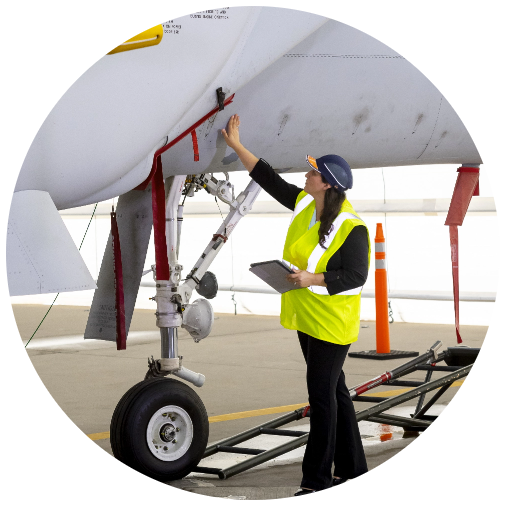Sara Bowen
Vice President, Global Equity, Diversity & Inclusion, Talent Intelligence and Employee Listening
"Progress isn’t a moment in time, and it’s not a set of metrics. Progress is commitment and action from all of us every day.
Across Boeing, we continue to make progress on our commitments as we advance representation and inclusion companywide. We know diversity must be at the table for every important decision our company makes — every challenge we face, every innovation we design. Equity, diversity and inclusion are core values because they make Boeing — and each of us individually — better.
We are on our way to achieving Boeing’s 2025 aspirations and are committed to doing much more, for many years to come."
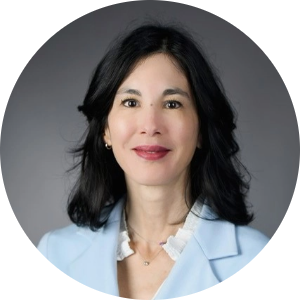
“Seek, Speak & Listen is a simple concept with big impact for Boeing. Through these habits, teammates feel confident speaking up and trust their voice will be heard, which allows us to address issues before they become problems.”
David Calhoun
Boeing President & CEO
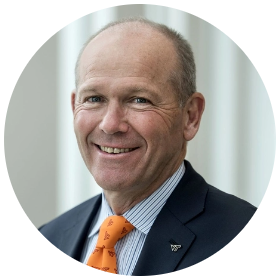
Who We Are
Boeing’s greatest asset is its people, with roughly 156,000 teammates representing 47 nationalities in 65 countries around the globe.
In 2022, we continued toward our goal of making Boeing’s team more reflective of the communities in which we work. We set, met and even exceeded targets for more diverse candidate slates* and fewer direct-placements into manager and executive roles — and we saw increased representation for women and U.S. racial and ethnic minorities at nearly all levels of the company. At the same time, resignation rates at Boeing remained lower than industry averages with no statistical differences in the exit rates of women, men and teammates of different races across the company.
*Diverse candidate slates in the U.S. include at least one woman and/or underrepresented ethnic or racial minority, and in non-U.S. countries include at least one woman.
156,000
Employees
47
Nationalities
65
Countries
Our Data
Over the past three years, representation at Boeing has increased for women and U.S. racial/ethnic minorities in nearly every area. While Boeing surpasses industry averages, women and minorities remain sorely underrepresented in STEM, especially in the aerospace and defense sector. We are committed not only to improving our own diversity, but also to ensuring a robust and diverse pipeline of talent for generations to come.
- Gender
- Race & Ethnicity
- Veterans
- LGBTQIA+
- Disability
Women
Women’s representation in our workforce increased to 24.1% in 2022 from 23.2% in 2020, both because of hiring efforts and stronger retention.
Gender Overall
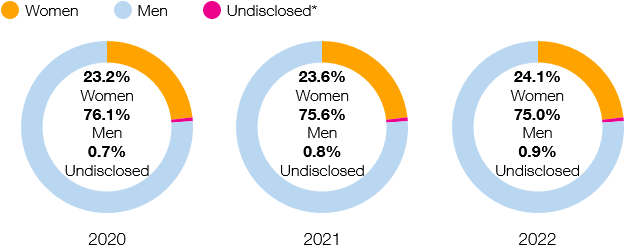
*Undisclosed refers to employees who chose not to declare.
Gender by Business Unit
- Boeing Commercial Airplanes
- Boeing Defense, Space & Security
- Boeing Global Sevices
20.8%
Women
78.5%
Men
0.7%
Undisclosed
Women +1.3 percentage points since 2020
25%
Women
74.5%
Men
0.5%
Undisclosed
Women +1.2 percentage points since 2020
26.5%
Women
72.8%
Men
0.7%
Undisclosed
Women +0.5 percentage points since 2020
Women are now more represented at every level within our employee base — executive, manager, individual contributor, engineer, and production and maintenance — than they were a year ago.
Women by Job Group
| 2020 | 2021 | 2022 | |
|---|---|---|---|
| Board of Directors* | 25% | 25% | 30.8% |
| Executive Council* | 13.6% | 19% | 19% |
| Executives | 31.5% | 33% | 33.2% |
| Managers | 22.3% | 22.9% | 23.7% |
| Individual Contributors | 34.5% | 34.5% | 34.6% |
| Engineering | 16.5% | 16.9% | 17.4% |
| Production & Maintenance | 13.8% | 15.4% | 16.6% |
| Promotions | 27.6% | 29.7% | 28.5% |
| New Hires | 21.8% | 24.7% | 25.3% |
*Board of Directors and Executive Council numbers reflect status as of April 2023. All other numbers are based on data from December 2022.
Race & Ethnicity
U.S. racial and ethnic minority representation is up to 35.3%, four points higher than in 2020 and three points higher than the industry average. Racial and ethnic minorities are now more represented at every level than they were a year ago, except at the executive level, where representation dropped one point to 21%.
We continue to build a diverse leadership pipeline: 27% of managers are racial and ethnic minorities, up three points from last year and four points from 2020. We attribute this to encouraging and incentivizing diverse candidate slates for all manager and executive positions as one way to meet our operational goals as well as our commitment to developing and promoting internal diverse talent.
U.S. Race/Ethnicity Overall

Overall Breakdown by U.S. Race/Ethnicity
| 2020 | 2021 | 2022 | |
|---|---|---|---|
| Asian | 14.2% | 14.6% | 15.9% |
| Black | 6.4% | 6.6% | 7.1% |
| Hispanic/Latino/a/x | 7% | 7.4% | 8.1% |
| Native American | 0.8% | 0.8% | 0.8% |
| Pacific Islander | 0.6% | 0.7% | 0.7% |
| 2 or more races | 2.2% | 2.3% | 2.6% |
| White | 68.8% | 67.1% | 64.2% |
U.S. Racial and Ethnic Minorities by Business Unit
- U.S. Boeing Commercial Airplanes
- U.S. Boeing Defense, Space & Security
- U.S. Boeing Global Sevices
41.4%
Racial and ethnic minorities
+5.3 percentage points since 2020
28.3%
Racial and ethnic minorities
+3.7 percentage points since 2020
38.2%
Racial and ethnic minorities
+2.5 percentage points since 2020
U.S. Racial and Ethnic Minorities by Job Group
| 2020 | 2021 | 2022 | |
|---|---|---|---|
| Board of Directors* | 16.7% | 25% | 25% |
| Executive Council* | 35% | 33.3% | 21.1% |
| Executives | 20.8% | 22.5% | 21.8% |
| Managers | 23% | 24.3% | 27.1% |
| Professionals | 28.2% | 29.2% | 30.7% |
| Engineering | 32.3% | 33.5% | 35.6% |
| Production and Maintenance | 36% | 38.4% | 42.5% |
| New Hires | 37.2% | 42.5% | 47.5% |
| Promotions | 32% | 33.3% | 34.4% |
*Board of Directors and Executive Council numbers reflect status as of April 2023. All other numbers are based on data from December 2022. Because our Executive Council is a small group, and because racial/ethnic data is only collected on U.S.-based executives, retirements and job changes have an outsized effect on population percentages.
Veterans
Veteran representation stayed steady at 14.6% and is above industry average in the majority of our business units — most notably Global Services, which is nearly 11 points above comparable aerospace businesses. While we have more veterans than a year ago, and more than we had in 2020, the veteran representation rate is down slightly because our non-veteran population grew at a faster rate.
Our hiring and retention efforts continue with partnerships like the U.S. Department of Defense’s SkillBridge program and expanded military pay differentials for reservists on temporary special duty. These efforts help us not just hire veterans but also continue supporting them and their families so they can enjoy enduring careers with Boeing.
U.S. Veterans Overall

U.S. Veterans by Business Unit
| 2020 | 2021 | 2022 | |
|---|---|---|---|
| U.S. Boeing Commercial Airplanes | 16% | 14.9% | 14.4% |
| U.S. Boeing Defense, Space & Security | 18.8% | 18.8% | 20% |
| U.S. Boeing Global Services | 34.8% | 27.9% | 27.9% |
LGBTQIA+
People do their best work when they are psychologically safe and supported. Boeing is committed to providing world-class opportunities to our LGBTQIA+ teammates, as we are to all populations. Offering teammates the opportunity to voluntarily and confidentially self-identify (self-ID) their gender identity and sexual orientation in the U.S. helps us better understand our workforce and support teammates through tailored benefits, recruitment and retention efforts, learning and development programs and more.
U.S. Self-ID Participation Rates
Gender Identity
14%
Participation
Sexual Orientation
12%
Participation
Disability
Having a disability is part of the human condition, as many people will experience a physical or mental condition at some point in their lives. Self-ID is important because it helps destigmatize disability, and we’re heartened that participation numbers continue to increase, as does the percentage of our workforce that has a disability (up 1.3 points from last year). Programs like Neurodiversity at Work have helped Boeing employ neurodiverse talent in thoughtful ways. Program participants receive ongoing coaching and support, and their teams receive workplace education about autism, ADHD, dyslexia and other neurological variations.
U.S. Self-ID Participation Rates
Disability
40%
Participation
7.7%
Of workforce has (or has had) a disability
Data disclaimer and terms
This report provides visibility to the reliable data we have based on teammates’ voluntary self-identification but does not reflect the full diversity of our workforce. We’re working toward expanded self-identification outside the U.S. Additional U.S. data is available in our 2021 EEO-1 report. More information is also available in the data glossary.
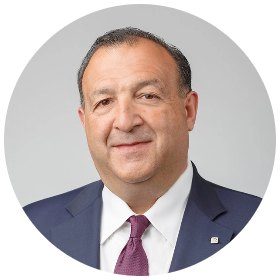
“Seek, Speak & Listen helps every teammate feel heard, cared for and psychologically safe. That’s why we’ll continue to seek and listen to each unique voice.”
Mike D’Ambrose
Chief Human Resources Officer
Executive Vice President, Human Resources
2025 Aspirations
Progress
In 2021, we set a goal to increase the Black representation rate in the U.S. by 20% over our baseline of 6.4%. Since that time, Black representation has increased to 7.1%, signifying a rate increase of 11%. With our continued focus, we are on track to achieve this aspiration by the end of 2025.
Progress
Overall racial and ethnic minority representation increased to 35.3% in our U.S. workforce and accounted for 47.5% of new hires (a 5-point increase from 2021) and 34.4% of promotions in 2022.
Progress
In 2022, for the second consecutive year, we saw exit rates for women, men and teammates of all races within one point of each other.
Progress
The Seek, Speak & Listen habits have taken hold in our culture, and we continue to cultivate common understanding and mutual respect. But our culture surveys tell us that many teammates feel their teams could do more to ensure everyone feels included — and this is true across all genders and races. This is an important indicator of psychological safety so we will continue to work at it.
Progress
Men and women of different races report similar levels of psychological safety as measured through indicators like comfort admitting mistakes and asking questions when they recognize tension or worry on their teams.
Progress
This is Boeing’s third annual report, and Boeing is committed to continued sharing of our progress and responding to feedback from our teammates.
“I was encouraged to push my boundaries and take opportunities outside my comfort zone.”
Jaida West
Inaugural Thurgood Marshall College Fund Scholar, now part of the
Boeing Career Foundations Program
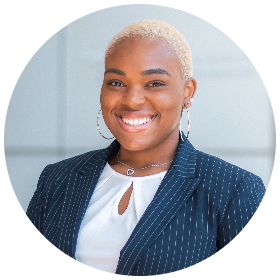
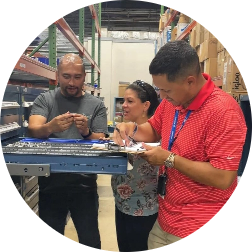
San Antonio, United States: Tooling Made Efficient
The foundation of inclusion is psychological safety, and this means teammates feel safe to speak up and leaders listen and act — often establishing better ways to perform day-to-day tasks. When the San Antonio tooling team practiced the Seek, Speak & Listen habits together, they improved process inefficiencies and fixed ergonomic and safety risks.
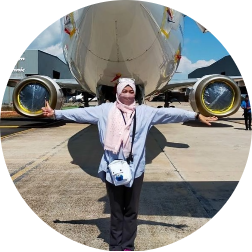
Dubai, United Arab Emirates: Removing Barriers
Vini Maskun, a Boeing field service representative in Dubai, has worked on 20 airplane types over her 25-year aerospace career. Early in her career, she encountered male colleagues who ignored her technical inputs because they assumed she didn’t understand the aircraft. Today she uses Seek, Speak & Listen to deliberately ask the opinion of those who might go unnoticed in the room.
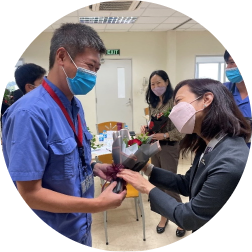
Vietnam and Japan: Gender Workshops Inspire Action
In partnership with the Boeing Women Inspiring Leadership Business Resource Group, supplier Mitsubishi Heavy Industries hosted workshops in Vietnam and Japan to increase awareness of gender gaps and inspire leaders to take ownership of equity in the workplace.

“Boeing is a company that stimulates people to speak by knowing they will be heard, and not only accepting us for who we are, but also valuing us for it. It is great to know that when I am not with my kids, I am still building the society I want for future generations.”
Juliana Pavao
Director, Government Affairs, Latin America & Caribbean
Our Opportunities
Join our team, and learn more about equity, diversity and inclusion at Boeing.
